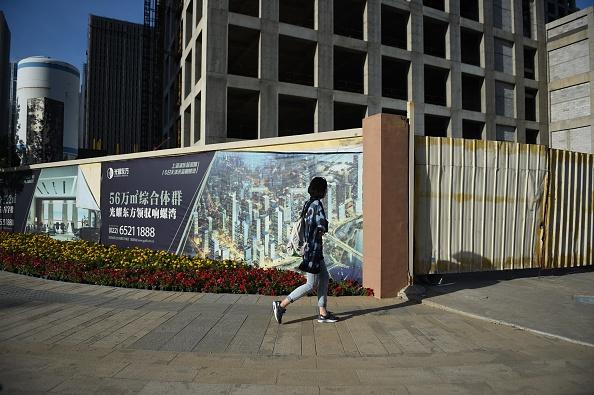Chinese homebuyers have been badly hit by defaults in residential property developments. Numerous families are suffering with unbearable financial loss due to unfinished housing units they purchased. An array of these half-completed residential villas sits right in front of the local district office of Tianjin, the largest coastal metropolis in northern China.
On Sept. 15, homebuyers protested in front of the district office of Binhai New Area, a sub-provincial district and state-level new area within Tianjin which the government once touted as a replicate of developments in Shanghai.




